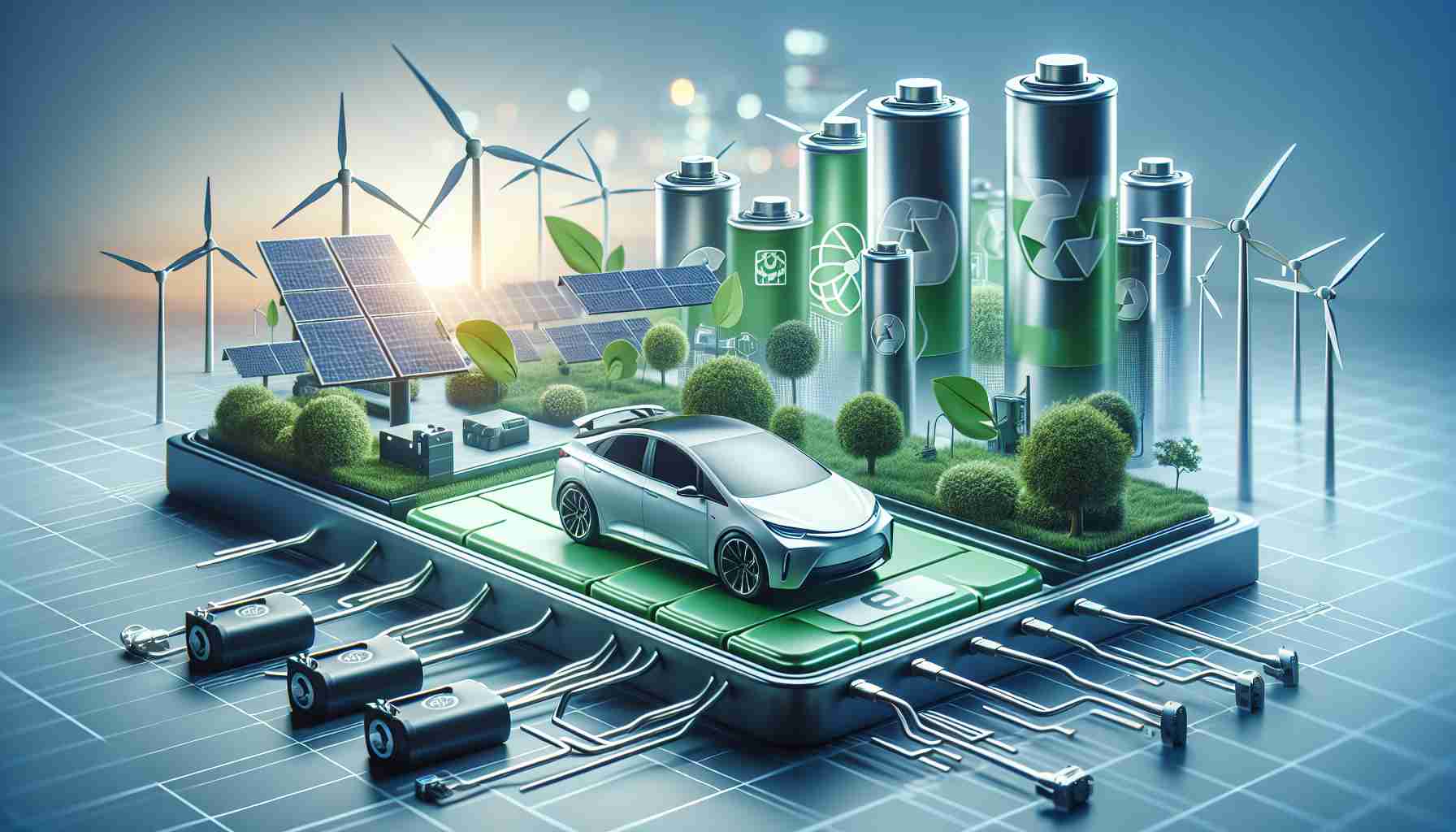BMW Group is committed to a sustainable future through its collaboration with SK Innovation (SK TES). This partnership emphasizes an innovative recycling process aimed at transforming used high-voltage batteries into valuable resources. With awarded recognition for their environmental efforts, SK TES has gained accolades such as the Sustainability Service of the Year from the Business Intelligence Group and the Apex Award from the UN Global Compact.
As part of this initiative, BMW’s outdated batteries from its European operations will be sent to SK TES, initiating a crucial step toward a more efficient circular economy in battery usage. The recycling process begins with the mechanical shredding of the batteries, enabling the concentration of metals. This material, referred to as “black mass,” is key in recovering essential metals.
Through an advanced technique known as hydrometallurgy, SK TES extracts valuable materials including nickel, lithium, and cobalt from the shredded batteries. These recovered raw materials are vital components for the production of BMW’s new GEN 6 powertrain. This innovative approach not only addresses waste management challenges but also enhances the sustainability of battery production, promoting a greener automotive industry.
In essence, BMW’s forward-thinking partnership with SK TES illustrates a powerful commitment to recycling and sustainability in the automotive sector, paving the way for a more responsible future.
Revolutionizing Battery Recycling: BMW and SK Innovation’s Green Initiative
BMW Group’s Sustainable Future through Innovative Recycling
BMW Group is at the forefront of the automotive industry’s push towards sustainability, particularly through its strategic collaboration with SK Innovation (SK TES). This partnership focuses on developing an innovative recycling process aimed specifically at repurposing used high-voltage batteries, a crucial step for fostering a circular economy in the burgeoning electric vehicle sector.
Innovative Recycling Process
The recycling process initiated by this partnership begins with the mechanical shredding of outdated batteries sourced from BMW’s European operations. This step is critical as it allows for the efficient concentration of valuable metals, creating a substance known as “black mass.” The black mass contains essential raw materials necessary for modern battery production, making the recycling effort both environmentally friendly and economically viable.
Advanced Recovery Techniques
SK TES employs advanced hydrometallurgy techniques to extract key materials such as nickel, lithium, and cobalt from the shredded batteries. These metals are essential for manufacturing BMW’s new GEN 6 powertrain, which is set to enhance the efficiency and performance of their electric vehicles. This recovery process not only mitigates waste management challenges but also ensures a sustainable supply chain for vital battery components.
Benefits and Sustainability Insights
Pros of the BMW and SK TES Partnership:
– Sustainable Materials Recovery: This initiative helps in reclaiming valuable materials that would otherwise contribute to environmental waste.
– Reduced Carbon Footprint: By recycling batteries and using recovered materials, the carbon footprint associated with sourcing new raw materials is significantly diminished.
– Innovation in Electric Vehicle Technology: The collaboration pushes the boundaries of what’s possible in electric vehicle technology, making it more sustainable.
Cons and Limitations:
– Initial Costs: The upfront investment in advanced recycling technologies can be significant.
– Logistical Challenges: Coordinating the collection, shredding, and processing of used batteries may pose logistical hurdles.
Market Analysis and Predictions
The global electric vehicle market is anticipated to grow exponentially, with a corresponding demand for efficient battery recycling solutions. According to industry trends, the market for battery recycling is predicted to reach $19.6 billion by 2030, driven by the increasing adoption of electric vehicles and stringent regulations on electronic waste. BMW’s proactive approach positions it as a leader in sustainable practices within this expanding market.
Security and Sustainability Features
As part of its commitment to sustainability, BMW also focuses on the security aspects of battery recycling. By thoroughly managing the recycling process, they ensure that sensitive materials are handled in an environmentally responsible manner, minimizing risks associated with improper disposal.
Conclusion
BMW’s collaboration with SK Innovation represents a significant stride toward a more sustainable automotive industry. By pioneering innovative recycling techniques and embracing a circular economy, BMW is setting a benchmark for others to follow, proving that environmental responsibility can coincide with technological advancement in the electric vehicle sector.
For more insights into sustainable automotive initiatives, visit BMW Group.
